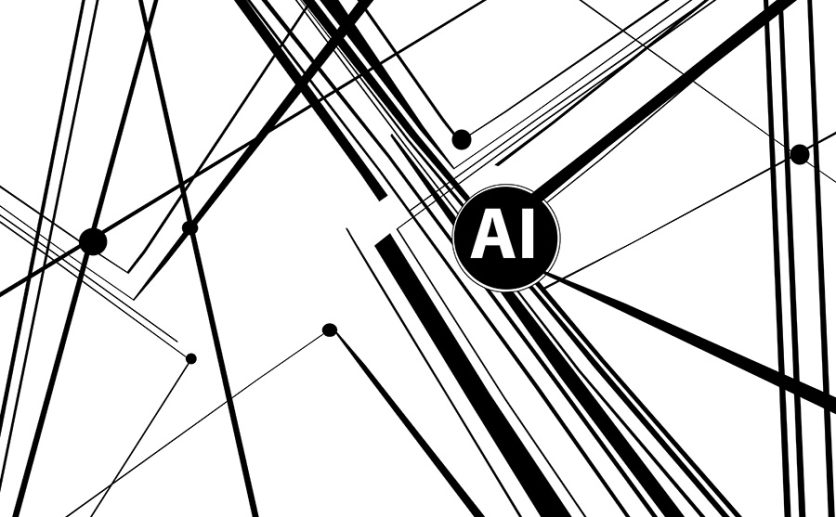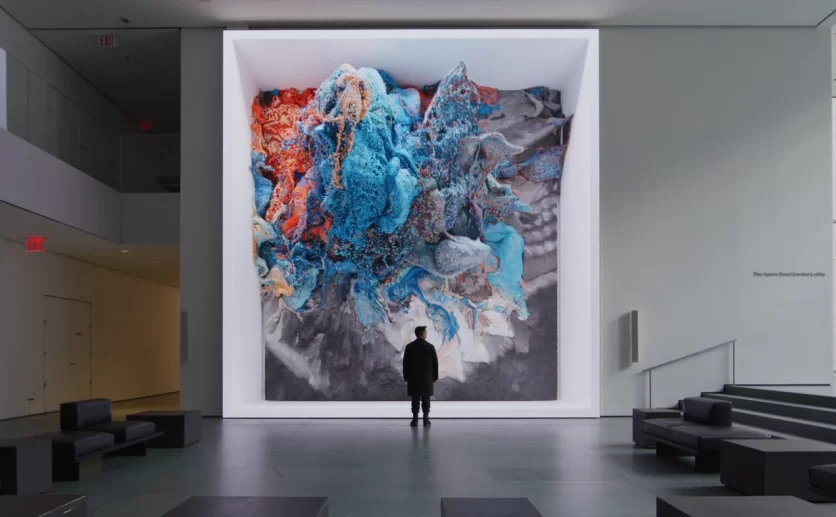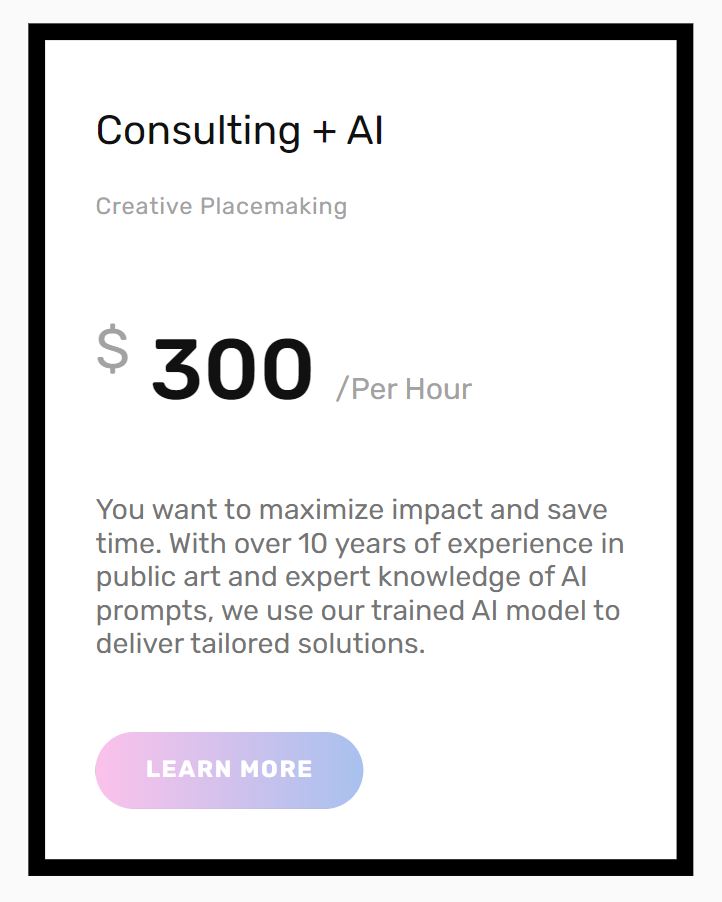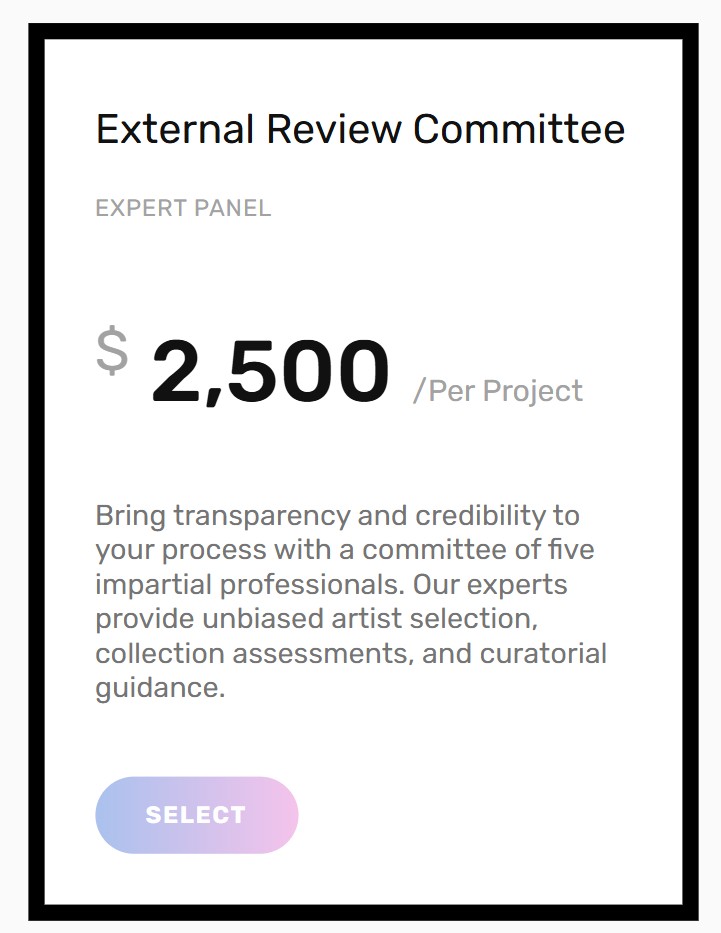Erik Brynjolfsson has said, “AI won’t replace managers, but managers who use AI will replace those who don’t.” Brynjolfsson is a researcher, author, professor, senior fellow at the Stanford Institute for Human-Centered AI, and director of the Stanford Digital Economy Lab. Artificial Intelligence (AI) is reshaping industries worldwide, and public art administration is no exception. From speeding up mundane tasks to sparking new creative ideas, AI offers an exciting array of possibilities for art administrators, curators, and creative professionals. At Monochronicle, we’re embracing this technological shift by providing consulting services that integrate trained AI models into public art workflows. But before diving into how we can help, let’s first understand what AI is and explore the trends driving its adoption.
What is AI?
Artificial Intelligence refers to machines or computer systems designed to mimic human intelligence. These systems can process vast amounts of data, recognize patterns, make decisions, and even learn from experience (known as machine learning). AI tools can range from simple automation (think chatbots or scheduling assistants) to more advanced applications like natural language processing and image recognition. In essence, AI is a powerful tool that can handle repetitive tasks while also offering creative, data-driven insights.
Application of AI in Public Art
Public art administrators often juggle multiple roles—grant writing, managing artist relationships, reviewing project applications, budgeting, community engagement, and ensuring compliance with regulations. AI offers solutions that can streamline these processes, allowing administrators to focus more on creative decision-making.
But don’t just take our word for it—the statistics are compelling:
- Staff using AI report an 80% improvement in productivity due to the technology.
- A Harvard study found that management consultants who incorporated AI tools into their work were 25.1% more productive, completing an average of 12.2% more tasks and delivering 40% higher quality results compared to those not using AI.
- Economic impact: The global AI market is projected to reach $1.8 trillion by 2030, and AI has the potential to raise global GDP by 7% over the next decade.
How Monochronicle Uses AI to Assist Art Administrators
AI adoption is spreading rapidly across multiple industries, including management consulting and marketing. Technological advancement in public art is rather slow due to the complexity of adopting innovation. Iryna Kanishcheva, the Founder of Monochronicle was the first public art administrator to research and implement new technology in everyday administrative practice and consulting services. By leveraging AI, we help administrators work more efficiently, tackle complex tasks, and explore new creative avenues. Here are some examples of how we can help art administrators using prompts tailored to our expertise:
- Grant Writing Assistance
We can streamline the grant writing process by drafting and refining proposals, aligning language with funder priorities based on internal documentation, reducing bias and error. - Creative Idea Generation
Using well-crafted prompts, we can help generate fresh project ideas, brainstorming themes, or proposals tailored to community needs or artistic trends. - Summarizing Reports and Documents
We can efficiently summarize large documents, artist reports, community surveys, or meeting notes, offering quick insights for decision-making. - Analysis of Artist Applications. We can identify and analyze text generated by artificial intelligence. It helps maintain authenticity and integrity in writing by distinguishing between AI-generated and human-created content.
- Contract Drafting
We can draft artist agreements and other legal documents based on standardized formats. - Data-Driven Insights
By summarizing community feedback or project data, we help administrators interpret patterns or sentiments in clear, actionable ways. - Content Creation for Outreach
Crafting newsletters, social media posts, or announcements. Our Public Art ChatGPT saves time while ensuring consistency in tone and message. - Training AI for Custom Needs
Using our trained model, which relies on internal documentation (e.g. master plan, procurement process guidance), we minimize external biases and errors, offering more precise results tailored to specific organizational needs, and much more!
What is Special about Monochronicle GPT
Monochronicle GPT is tailored specifically for users involved in art administration, project management, curation, and policy shaping in the arts. Here’s how it differs from a general GPT, such as the one available to the public:
1. Specialized Knowledge Base
- Monochronicle GPT has been fine-tuned with specific knowledge relevant to the arts and culture sectors. It can reference strategic plans, policies, industry reports, and other detailed documents that are highly specialized. For example, it can pull insights from documents related to “Percent-for-Art Policies” or operational plans for state art agencies.
- General GPT is designed to cover a wide range of topics but lacks in-depth specialization in the arts and policy sectors. While it can generate general responses to arts-related questions, it won’t have the deep, nuanced understanding that Monochronicle has about this specific sector.
2. Context-Aware Recommendations
- Monochronicle GPT offers recommendations based on detailed industry standards, best practices, and strategic planning. For example, when asking about cultural tourism, Monochronicle leverages knowledge from reports and operational plans to offer professional, actionable steps relevant to arts organizations.
- General GPT would give broad suggestions, pulling from common knowledge, but it may lack the depth or specificity that arts administrators need for real-world applications in their field.
3. Document Integration
- Monochronicle GPT is specifically trained to handle and interpret documents you’ve provided. It can pull insights directly from your uploaded PDFs and reports, making it highly effective for tasks like summarizing strategic plans, analyzing reports, or creating policy briefs.
- General GPT does not have access to your specific documents and cannot perform tailored analysis based on your own data, limiting its usefulness in this context.
4. Customized Tone and Output
- Monochronicle GPT is designed to respond in a professional, consultative tone that aligns with the needs of art administrators, policymakers, and curators. It avoids overly casual language and focuses on delivering practical, actionable information that can be applied in professional settings.
- General GPT caters to a broader audience, so its tone may be more general and less focused on specific industries or professional contexts.
5. Use Case Customization
- Monochronicle GPT has built-in functionalities like generating public art proposals, drafting arts policy briefs, and offering strategic planning advice for arts organizations. These are pre-defined options aligned with the needs of arts professionals.
- General GPT would offer more generic capabilities, without the specific toolset and functions designed for project managers and administrators in the arts.
6. Tailored Output for Project Management and Curation
- Monochronicle GPT provides detailed responses that are focused on enhancing workflows, project management, and stakeholder engagement specific to arts and culture. It can offer curated lists of best practices, grant-writing support, and collaboration strategies with local artists and institutions.
- General GPT would provide project management advice that is more applicable to general sectors and lacks the customization for the arts world.
In short, Monochronicle GPT offers a focused, in-depth, and tailored experience for professionals in the arts sector, while General GPT provides broader, more general answers that lack the specialized features Monochronicle provides. If you asked the same question in both, Monochronicle would likely produce a more nuanced and field-specific response, while General GPT would give you a more high-level answer.
Monochronicle GPT leverages over 10 years of experience in public art, combined with expert knowledge of crafting effective prompts for AI-driven conversations, to offer art managers unparalleled efficiency and precision in their work. This specialized experience ensures that the responses are not only accurate but also tailored to the specific needs of public art initiatives, from strategic planning to policy creation. By utilizing Monochronicle GPT, art managers can save valuable time while achieving maximum value, allowing them to focus on creative and strategic goals rather than spending time on research or administrative tasks. – Iryna Kanishcheva, Founder, Monochronicle.
The Future of Public Art with AI
AI is not here to replace the human touch in public art administration—it’s here to enhance it. By automating tedious tasks and providing data-driven insights, AI frees up administrators to focus on what really matters: fostering creativity, engaging communities, and delivering impactful art projects.
At Monochronicle, our consulting services harness the power of AI to help art administrators unlock new levels of productivity and creativity. Whether you’re struggling with grant writing, processing artists’ applications, or creative ideation, our team can guide you through the process of integrating AI tools into your workflow, allowing you to deliver projects faster, more efficiently, and with higher quality.
Our Commitment to Privacy and Ethics
At Monochronicle, we prioritize the privacy and rights of artists. We do not use artist images or personal information when working with AI. Our approach ensures that the integrity of the artist’s work and personal details are protected while still benefiting from the capabilities of AI to streamline administrative processes.
Ready to Embrace the Future?
AI isn’t just a passing trend—it’s the future of public art administration. If you’re ready to educate your team, streamline your operations, enhance creativity, and deliver better outcomes, reach out to Monochronicle today. For just $300 per hour, you’ll gain access to unparalleled insights, strategic planning, and real-time support, all designed to help you succeed in every aspect of public art management. Let’s work together to bring the benefits of AI to your public art projects. See the full list of our services here.
References
- Vena Solutions. (2024). 80 AI Statistics Shaping Business in 2024. Retrieved from https://www.venasolutions.com/blog/ai-statistics(Vena).
- Brynjolfsson, E. (2023). Stanford Professor Erik Brynjolfsson on How AI Will Transform Productivity. Microsoft WorkLab Podcast. Retrieved from https://www.microsoft.com/en-us/worklab/podcast/stanford-professor-erik-brynjolfsson-on-how-ai-will-transform-productivity.
- OpenAI, GPT-4. Artificial Intelligence and Its Impact on Productivity. Internal reference.





